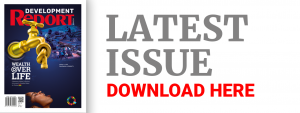Gabon’s Coup Crisis- Unraveling Democracy, Colonial Shadows, and Pathways Forward

Charles Kojo Vandyck is a dynamic development practitioner and thought…
The unfolding crisis in Gabon, marked by a daring move by a group of mutinous soldiers seizing national television to annul recent election results and dissolve key institutions, offers a profound insight into the complex dynamics of democracy in African nations. This crisis occurs against the backdrop of historical colonial legacies and ongoing geopolitical interests. As we continue to interrogate this troubling situation, it becomes essential to understand its ramifications and navigate a more stable course for African democracies.
The act of these mutineers, numbering around a dozen, raises a fundamental question: can Western-style democracy truly fit within African contexts? This unfortunate event highlights the stark gap between imported democratic norms and the unique socio-political landscapes of African countries, repeatedly casting doubt on their effectiveness.
Western democracy, characterised by multiparty systems and regular elections, does not always harmonise with the historical, cultural, and economic realities of African states. This mismatch has contributed to eroding public trust, widespread corruption, and heightened instability, as ruling elites often prioritise power and personal interests over genuine governance.
Former colonial powers, especially France in Gabon’s case, continue to exert a profound influence on the political paths of their former colonies. Decades of colonial rule have left a lasting impact on African nations’ political and economic structures, leading to a situation known as neo-colonialism, where external powers maintain significant control over domestic affairs. In Gabon, the historical ties between Gabonese leadership and French authorities have often led to tension. This complex web of economic interests and political alliances can hinder true sovereignty, leaving countries like Gabon struggling to assert their independence.
These unfortunate events are a challenge to African nations to develop governance models that resonate with their unique historical, cultural, and socioeconomic contexts. Prioritising inclusivity, decentralisation, and empowering local communities can play a pivotal role in constructing political systems that better serve their populations. Regional organisations, such as the Economic Community of Central African States (ECCAS), should actively engage in fostering regional stability and mediating political conflicts. Strengthened regional cooperation can enable African nations to pool their resources and expertise to address common challenges.

Governments across Africa should prioritise transparency, accountability, and the rule of law. Establishing independent judiciaries, nurturing a robust civil society, and safeguarding media freedoms are critical steps in combating corruption and ensuring responsible governance. African nations should work towards reducing their reliance on former colonial powers and other external actors. Diversifying their economies, fostering regional trade agreements, and pursuing foreign policies that promote African unity can help mitigate external interference. Active citizen participation in the political process is pivotal. Governments should invest in educating and engaging their citizens, encouraging them to actively shape their nation’s destiny. Informed and engaged citizens are more likely to hold their leaders accountable.
It is important to reiterate that the ongoing coup crisis in Gabon underscores the urgent need to adopt governance models that align with Africa’s unique circumstances. It emphasises the crucial task of curbing external interventions that have historically disrupted the organic evolution of political systems in the region. To move forward, African nations must earnestly embark on the journey to construct governance frameworks tailored to their unique contexts, enabling the cultivation of robust democracies that genuinely reflect the aspirations of their citizens.
The current crisis in Gabon highlights the necessity of departing from conventional governance paradigms that may not suit the intricate nature of African societies. While customising governance to a specific context may seem challenging, it promises benefits that far outweigh the difficulties. African nations can create institutions that resonate more deeply with their people, fostering a sense of ownership and engagement in the democratic process by anchoring political systems within their own cultural, historical, and social foundations. At the heart of this transformation lies the imperative to reduce external interference that has historically hindered governance evolution in Africa. The continent’s history is marked by instances where foreign interests and interventions have sown instability and perpetuated political upheaval.
The call to action, then, is for African nations to assert their autonomy and chart their course without undue external influence. This way, they can protect their sovereignty and empower their citizens to shape their own political destinies. Embracing this challenging yet transformative path holds the promise of a brighter future for Africa. A future where nations are no longer haunted by the threat of coups or manipulation from abroad. Instead, they can cultivate vibrant democracies rooted in the values, aspirations, and cultures of their people. The time to act is now, as the ongoing crisis in Gabon reminds us that the current status quo is unsustainable. African nations can forge ahead into an era of self-determination, resilience, and genuine political progress by rallying around the call to adopt governance models that are authentically African and resisting external pressures. The journey begins with a collective commitment to reclaiming agency over our own future.
Charles Kojo Vandyck is a dynamic development practitioner and thought leader who is who is driving transformative change within civil society. He is a founding member of the International Consortium on Closing Civic Space (iCon). He is the Head of the Capacity Development Unit at the West Africa Civil Society Institute (WACSI) and hold several positions such as Trustee of INTRAC and an Advisory Board Member of Disrupt Development among others.





